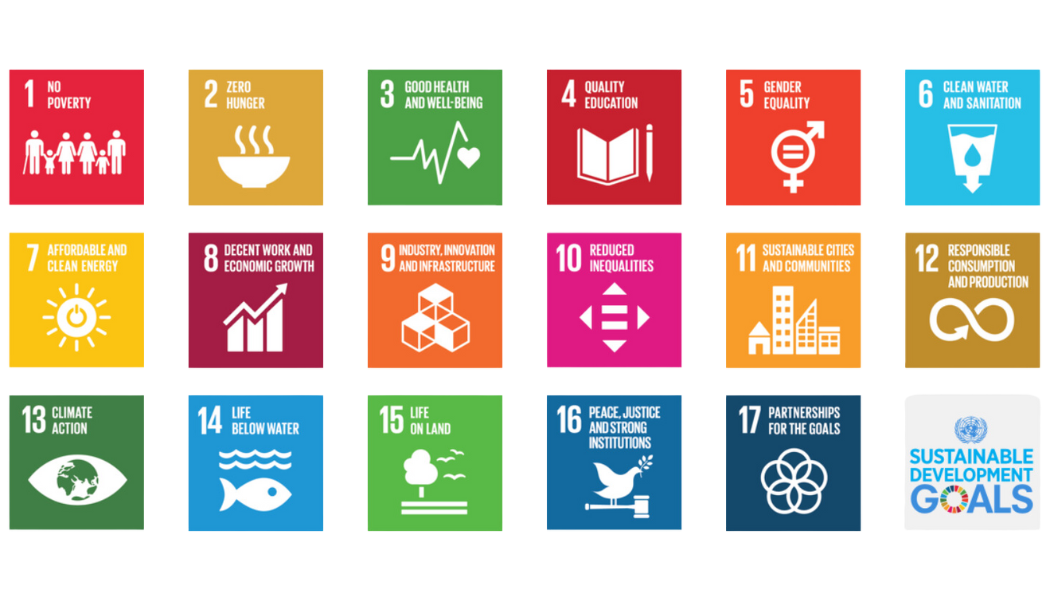
32,664*
homes
Since our formation in 2017, Karbon has focused on delivering our three strategic aims - to provide as many good quality homes as we can, to deliver excellent service to our customers, and to shape strong, sustainable places for our communities.
Our footprint covers the North East of England and Yorkshire, with over 32,000 homes across diverse communities, all facing different opportunities and challenges.
Some customers just need an affordable home, or a way onto the property ladder. Others might need more – financial advice, community services, sheltered accommodation or training that can lead to a new job. Whatever people need to feel more secure, confident and happy with their lives, we work hard to provide it.
We believe that by focusing on our three strategic aims, combining a sound business head with a strong social heart and staying true to our values, we can build strong foundations for even more people.
Welcome to our Environmental, Social and Governance (ESG) Report. Sustainability underpins our mission to provide affordable, safe and secure homes across our communities in the North East and Yorkshire, and we welcome the opportunity that the Sustainability Reporting Standard (SRS) gives us to tell our story to you and to our wide range of stakeholders.
It’s been another significant year for both Karbon and our region. We’ve delivered 644 new homes within the group including some of our most environmentally efficient new homes to date. Our latest Tenant Satisfaction Measure (TSM) scores show our strong performance against the sector and our stock survey programme is approaching near complete access rates, which we hope demonstrates our unwavering approach to customer safety and well-maintained properties. Then there’s our employability scheme known as New Start which has gone from strength to strength with the backing of our local authorities.
It’s hard to set the scene for this report without looking at the impact the new North East Combined Authority (NECA) could have on our work. As well as the development opportunities that will be created through a Strategic Place Partnership between Homes England and NECA, devolution will enable the region to review its approach to areas such as skills training and it will hopefully kickstart a range of creative partnerships. We hope to work with NECA as an anchor employer and service provider across all our geographies, helping to co-ordinate better and more efficient services that might have previously been restricted by historic local authority boundaries.
Not forgetting our wider footprint, we continue to deliver all we can for our communities in Yorkshire and Tees Valley. Sixty per cent of our new homes were delivered across North Yorkshire and the East Riding last year, and 54North Homes, our Yorkshire-based subsidiary, officially completed its first year of business under the new brand in December. In Tees Valley, alongside our local housing partners, we received significant funding from the Combined Authority which allowed us to introduce our New Start programme to the area as part of one of the biggest housing-led employability schemes to date.
We hope you enjoy the report.

Paul Fiddaman, Group Chief Executive

homes

Decent Homes Standard

new homes completed in 2023/24

of our homes achieve EPC C or above

Our rents as an average of a typical market rented property across our region

energy efficiency upgrades, saving an estimated 489.675TCO2

customers helped through our Money Matters Team, with £5.32m generated for them in additional income

colleagues paid at living wage or above

mean gender pay gap

Colleague Net Promoter Score in 23/24

top governance and viability regulatory rating

S&P rating
* Karbon Group figures
Our work has a direct impact against the UN Sustainable Development Goals, as illustrated below, with ‘sustainable cities and communities’ at the heart. These SDGs helped to form the Sustainability Reporting Standard and will be highlighted throughout:

Our sector continues to play a leading role in retrofitting residential homes. For Karbon alone, meeting the net zero target for emissions could cost in the region of £360m by 2050. With such a huge potential investment involved, there are many things we need to get right, which is why we set up our Planned Investment Forum. The Forum will help us direct the next 25 years of investment in a way which ensures we meet key milestones and that every pound we spend on our homes is invested wisely and efficiently. Our Response to Climate Change Group shapes our net zero strategy and ensures it aligns with our investment plans so that it can be delivered most effectively.
Importantly, these working groups include representation from a range of internal teams including Asset Management, Housing, Karbon Property Services (KPS), Compliance, Finance, Communications and Procurement. This combination of talents is vital to the success of the strategy with each team adding their own expertise to meeting the environmental challenge.
For example, social value generated through procurement means we can lock as much of this investment as possible into local prosperity and jobs, while thoughtful communications help bring our customers with us on the retrofit journey. This is important particularly in light of the National Housing Federation’s prediction that ‘22% of the carbon reductions from home energy efficiency measures are predicted to come through changing resident behaviour.’

We’ve used the SHIFT environmental audit process to inform this section. SHIFT (Sustainable Homes Index for Tomorrow) is an independent assessment scheme which is prevalent in housing. It is designed specifically for social landlords to assess their environmental performance. Their annual assessment helps us to measure, identify and target improvements.



The Centre for Business and Economics Research predicts that building 90,000 social homes a year is estimated to be worth £51.2 billion to the economy. That value is so high because a social home is much more than bricks and mortar. A social home is a platform for social mobility which can bring a far wider range of benefits to residents. For example, social housing is the UK’s biggest investor in employability initiatives behind the Department for Work and Pensions. To maximise this investment, we’ve been working with other northern housing associations to find new ways to help our residents back into work.
In 2019 we helped set up the Housing Employability Network North East (HENNE) and we continue to operate at the forefront of its work. This year Karbon has played a key role in HENNE projects which have received in excess of £3.6m of UK Shared Prosperity Fund investment. This has allowed us to grow the New Start programme which we co-created back in 2021 (see C24). This year, we created our 100th New Start work placement and we are keen to show how the North can lead the UK in bridging what is often a mismatch between the supply of and demand for labour.
The impact of a housing association’s place-based work is increasingly what makes it stand out from the crowd. Our place-based work in impact areas such as Byker and Stanley continues to demonstrate Karbon’s willingness to use our influence and leverage to go beyond the role of a traditional housing association. Our Skills Hub in Stanley became the new home of a pop-up Barclays branch, encouraging financial inclusivity and bringing much-needed additional footfall to the high street. And in close proximity to the Hub, we are working with the local community and stakeholders to explore how we can bring a derelict board school site back to life with a new social purpose.





On 29 November 2023 the Regulator of Social Housing confirmed our governance and viability rating of G1/V1, the highest grade available in our sector. The rating validates that our board and management teams are careful in ensuring that we balance our resources effectively across our strategic aims, maximising value for money, and ensuring we understand the risks faced by our business, whether these are unique to us or those that affect the sector as a whole. As a G1/V1 provider we have the capacity and ability to mitigate our exposures effectively.
On 17 May 2024, S&P Global Ratings affirmed our credit rating as an ‘A’ ‘Outlook Positive’. S&P outlined that they thought Karbon’s credit metrics would remain ‘relatively strong compared to those of peers’ and were able to take a positive view of our ability to deal with the range of challenges facing the sector ‘thanks to (Karbon) management’s solid strategic planning and adherence to conservative financial policies’.
As a housing association which prides itself on operating with a ‘strong business head and a social heart’, the decisions the board makes are always based on a balanced scorecard approach, so it’s never just about the financials. Our board and management always aim to work within our credit rating metrics to both maximise our social outcomes but retain our financial strength, and ensure we are a sustainable business. We hope our culture and values are apparent in this report and the following section further highlights the ways in which we strive to be a thoughtful company. This is perhaps reflected most vividly in areas such as our professional development offer to our colleagues and the efforts we make to be an inclusive organisation.




The aim of the ESG report is to provide transparency and insight into the challenges we face but also to highlight the opportunities coming our way. For example, the ways in which we apply big spending programmes like domestic retrofit give us unprecedented economic leverage. In tandem, regional devolution has given us the political forum to do things better. We would therefore appeal to a range of stakeholders from institutional investors, local authorities, charities, public and charitable funders to read our report and we invite you to join us in tackling challenges like cost of living, and opportunities like employment and skills and net zero.
For investor queries please contact james.clifford@karbonhomes.co.uk. For customer queries please contact info@karbonhomes.co.uk.
